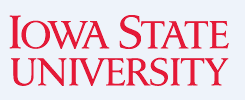
Lakeside Lab offers many opportunities for experiential learning, and we will be glad to work with you in developing a program that is appropriate for your school. For information, click the appropriate link below or contact our Education Coordinator at 712-337-3669 ext.7, jane-shuttleworth@uiowa.edu.
EDUCATION PROGRAMS AT IOWA LAKESIDE LABORATORY
School programs are available in the following formats:
- BASIC FIELD EXPERIENCE Recommended for ages 4 – 7. Two hour program includes interpretative nature hike and a hands-on activity.
- COLLABORATIVE PROGRAMS Lakeside staff works with teachers to develop school programs that meet their curriculum objectives, including pre-program teacher/student visits, Lakeside field experience and follow-up back in the school classroom. Includes use of classrooms, field and basic laboratory equipment. Example programs are listed to the right.
- RENT A LAB Develop your own program and Lakeside can provide classroom, equipment and facilities including lodging, access to kitchen and /or catering arrangements.
FEE SCHEDULE Lakeside staff will work with teachers to develop program costs. However, the basic rate for a half-day program without use of facilities or equipment is $2.00/student and $4.00 full day. Fees for using the teaching laboratories, classrooms in the Waitt Water Quality Laboratory, the Library, Mahan Hall, and other facilities are $17 per building per hour (maximum of $68 per day) plus the cost of any special set ups and for cleaning up afterward, if necessary. Rental of the Mess Hall is $69 per day plus cost for special set ups or for cleaning up afterwards.
SCHOOL BUS GRANTS The Friends of Lakeside Lab, Lakeside’s community support organization, offers grants to assist with field trip costs. Contact 712.337-3669 Ext 7 for more information.
Programs
The topics below are example programs. Lakeside staff can also work with teachers to create programs to meet their curriculum needs.
TREES - All grades: September – May Students learn the difference between upland and lowland forest and oak savanna, and how to identify species characteristic of each of these plant communities.
WHAT IS A PRAIRE? - All Grades: September – October; April- May
Students learn about the prairie heritage of our local landscape, including its influence on soil building and characteristic plant and animal species.
SEEDS! All Grades: September - October
Students will learn about the reproductive cycles of plants, the classification of fruits, develop their own seed collection, and be able to describe the dispersal method of the seeds they collect.
WINTER BOTANY - All Grades: November - March
Seeds, leaf scars, and tree architecture are just some of the features students will learn to use to identify and classify plants in their wintertime appearance.
LIFE UNDER THE ICE – All Grades: Dec - Feb
Students learn about the chemical and physical properties of water, and sample life under the ice on Little Miller’s Bay on West Okoboji.
WATER QUALITY - Middle to High School Students
September – October; April - May Students learn the basic parameters and techniques for checking up on water quality, including water clarity, temperature, pH, dissolved oxygen, nutrients, and bio-indicators. They also learn what a watershed is, and the influence of land use on water quality.
THE ANIMAL KINGDOM - All Grades: September – October; April - May
Students learn about the classification of different vertebrate and invertebrate groups though field experience and classroom activity.
INSECTS All Grades: September – October; April - May
Students collect and observe insects and other invertebrates in a variety of habitats on Lakeside grounds. They learn how insects and invertebrates are classified and about their adaptations and life cycles.
MIDDLE AND HIGH SCHOOL INTERNSHIPS
The State Hygienic Lab partners with Lakeside to offer a water chemistry and public health mentorship program for middle and high school students. For application information, contact Dennis Heimdal, Environmental Chemist, at 712.337-3669 Ext 6 or dennis-heimdal@uiowa.edu



